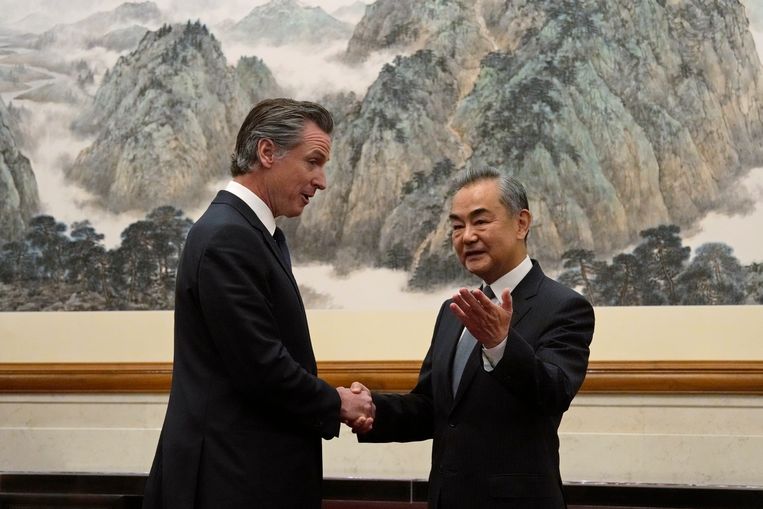Chinese Foreign Minister Wang Yi is on a three-day visit to the United States starting Thursday. His visit will pave the way for a meeting between Xi Jinping and Joe Biden.
Wang Yi’s visit is part of a series of recent US-Chinese announcements aimed at improving communications at a time of rising geopolitical tensions. His three-day visit to the US appears to be aimed at preparing for Chinese President Xi’s possible visit to the APEC summit in San Francisco in November. Beijing has yet to confirm Xi’s visit, but Wang Yi’s visit is promising. This is Xi Jinping’s first visit to the US in more than six years.
US President Joe Biden and his Chinese counterpart, Xi, last met in November 2022 at the G20 summit in Indonesia. They later agreed to improve communications between the two countries, but that idea was thwarted by an incident involving a Chinese ‘spy balloon’. Diplomatic ties between China and the US have since soured as Xi has strengthened ties with Russian President Vladimir Putin.
Wang Yi and US Secretary of State Anthony Blinken will discuss “bilateral, international and regional issues” in Washington, according to an official announcement. War in Israel and the Gaza Strip is high on the agenda. The US wants Beijing to use its influence in the Middle East to ensure the conflict does not spread further. Beijing has good relations with Iran, which supports Hamas and Hezbollah. Beijing is reluctant to apply too much diplomatic pressure, experts say.
tension
Wang Yi’s visit comes at a time of rising tensions in the South China Sea, where Chinese ships — now that the rest of the world is distracted by Israel and Ukraine — are behaving increasingly aggressively. On Sunday, two Chinese ships collided with Philippine ships near the Spratly Islands, the worst such incident this year. Beijing claims the area as its own, although a United Nations arbitration panel rejected that claim in 2016.
Wang Yi’s visit follows a month-long U.S. charm offensive that has seen several U.S. ministers visit China, including Treasury Secretary Janet Yellen. He agreed with his Chinese counterpart to establish the Economic and Financial Working Group, two forums where the United States and China would discuss economic matters. The first (digital) meetings of these working groups will be held this week.
On Sunday, the US will also send a delegation to the Jiangshan Forum in Beijing, an international security summit. Senior army and army personnel gathered there. The resignation of Chinese Defense Minister Li Shangfu, who was on the US sanctions list, could ease US-China military ties. After weeks of speculation, Li’s resignation was officially confirmed on Tuesday. His replacement is yet to be announced.
Diplomacy through culture and sport
In addition to all of these official interactions, non-governmental interactions between the United States and China have intensified. Track II Diplomacy or parallel diplomacy. This week, for example, a delegation of thirty representatives from the world of Chinese business, culture and sports, including basketball player and former NBA player Yao Ming, is traveling to New York. He attends a gala with American statesman and ‘friend of China’ Henry Kissinger and Chinese ambassador Xi Feng.
Both parties issued remarkably positive statements in the media. U.S. National Security Adviser Jack Sullivan emphasized this in an essay this week Foreign policy The United States does not seek the collapse of China “like the collapse of the Soviet Union,” but rather “a free, open, prosperous, and secure international order.” Even the Chinese Nationalist government newspaper Global Times “China-US ties show signs of recovery,” he wrote on Tuesday.
Despite these many positive voices, experts expect few concrete results from the Xi-Biden summit, other than preventing the relationship from deteriorating further. The US and China are at loggerheads in many areas and it doesn’t look like it will end anytime soon. For example, Washington recently introduced new, tougher technology restrictions that mean ASML, for example, can only sell many of its chip machines to China with a US license.

“Passionate analyst. Thinker. Devoted twitter evangelist. Wannabe music specialist.”







More Stories
Cooperation between the US and China ensures more stable corporate finance – FM.nl
New US peace proposal for Gaza war ‘may be too smart for either side to say no’
Bitcoin weathers bankruptcy storm in US